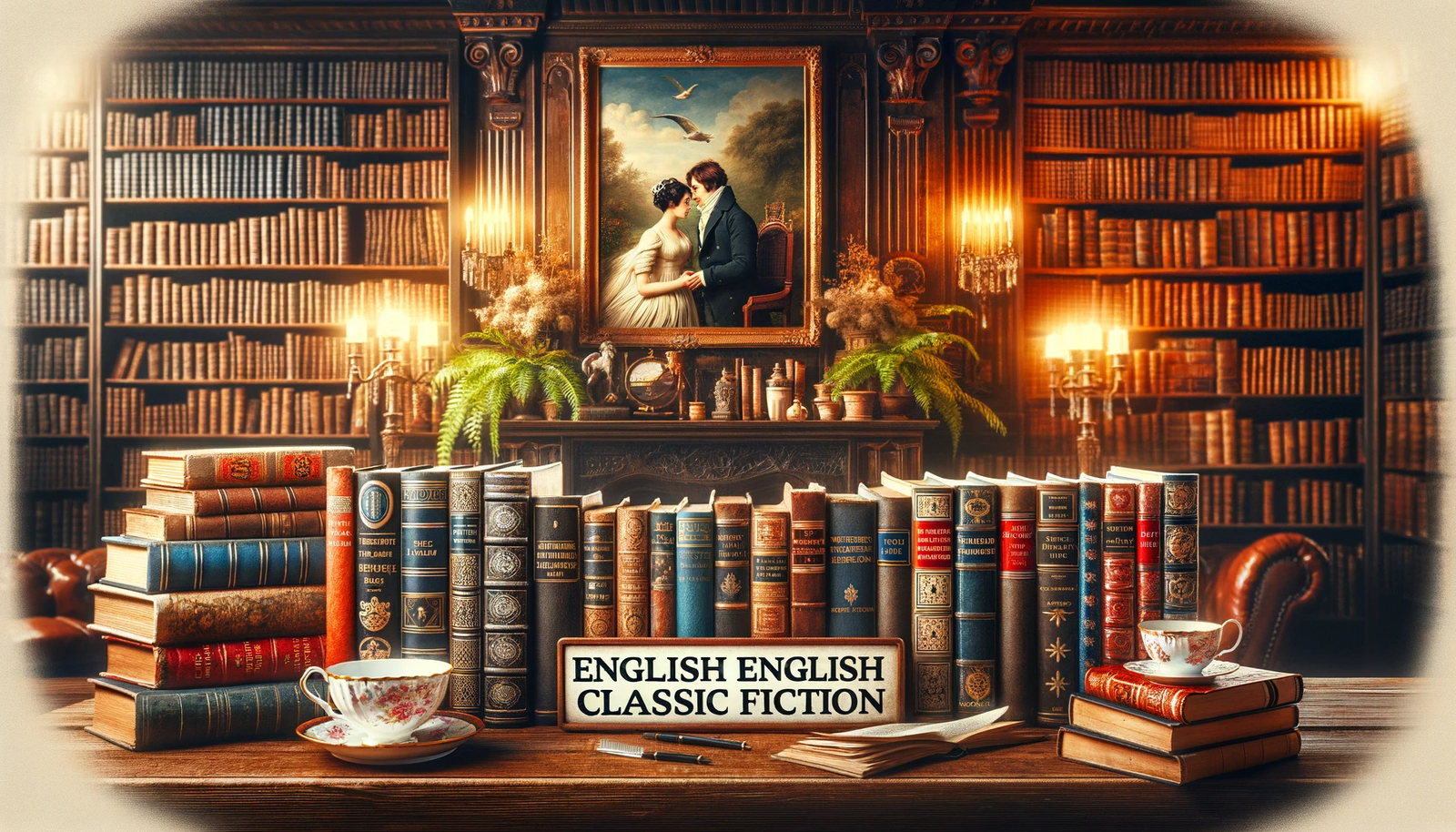Top 10 Classic English Books Every Fiction Writer Must Read
The world of fiction writing is a journey of endless possibilities, where words become windows to captivating worlds and characters come to life through the art of storytelling. As an aspiring fiction writer, you’re constantly on the lookout for inspiration and guidance to hone your craft. Look no further than the classics of English literature, where you’ll discover a treasure trove of wisdom, creativity, and timeless narratives.
In this extensive blog, we’ll delve into the top 10 classic English books that every fiction writer must read. These literary masterpieces have not only shaped the landscape of storytelling but also continue to inspire writers across generations. From the witty social commentaries of Jane Austen to the philosophical depths of George Orwell, these novels offer a diverse range of perspectives and storytelling techniques to enrich your writing journey.
So, grab your favorite reading chair and a cup of tea, and let’s embark on a literary adventure through the pages of these timeless classics.
1. “Pride and Prejudice” by Jane Austen
Jane Austen’s “Pride and Prejudice” is a delightful exploration of love, class, and societal expectations. The headstrong Elizabeth Bennet and the enigmatic Mr. Darcy navigate a world of manners, misunderstandings, and, ultimately, romance.
2. “Moby-Dick” by Herman Melville
Herman Melville’s epic “Moby-Dick” takes you on a harrowing journey aboard the whaling ship Pequod. Captain Ahab’s relentless pursuit of the elusive white whale, Moby Dick, becomes an allegory of obsession and fate.
- PDF: Moby-Dick PDF
3. “To Kill a Mockingbird” by Harper Lee
Harper Lee’s masterpiece, “To Kill a Mockingbird,” addresses themes of racial injustice and moral growth in the American South. Scout Finch’s coming-of-age story is a timeless exploration of empathy and tolerance.
4. “1984” by George Orwell
George Orwell’s dystopian classic “1984” offers a chilling vision of a totalitarian society where individuality is suppressed, and truth is malleable. Winston Smith’s rebellion against the Party’s control is a stark warning about the power of surveillance and propaganda.
- PDF: 1984 PDF
5. “Wuthering Heights” by Emily Brontë
Emily Brontë’s “Wuthering Heights” is a tale of love, revenge, and the moors of Yorkshire. The passionate and destructive love between Catherine and Heathcliff unfolds in a haunting narrative.
6. “Frankenstein” by Mary Shelley
Mary Shelley’s “Frankenstein” introduces the iconic character of Victor Frankenstein and his creation, the Creature. This Gothic tale delves into themes of scientific ethics and the consequences of playing with nature.
- PDF: Frankenstein PDF
7. “The Great Gatsby” by F. Scott Fitzgerald
Scott Fitzgerald’s “The Great Gatsby” paints a vivid portrait of the Roaring Twenties and the elusive American Dream. Jay Gatsby’s pursuit of wealth and love is a cautionary tale of excess and disillusionment.
- PDF: The Great Gatsby PDF
8. “Jane Eyre” by Charlotte Brontë
Charlotte Brontë’s “Jane Eyre” follows the journey of an orphaned governess, Jane Eyre, as she faces adversity and finds love in the brooding Mr. Rochester. The novel explores themes of morality, independence, and social class.
- PDF: Jane Eyre PDF
9. “The Catcher in the Rye” by J.D. Salinger
J.D. Salinger’s “The Catcher in the Rye” offers a glimpse into the mind of the teenage protagonist, Holden Caulfield. The novel delves into themes of alienation, innocence, and the search for authenticity.
10. “Brave New World” by Aldous Huxley
Aldous Huxley’s “Brave New World” presents a futuristic society where happiness is manufactured, and individuality is suppressed. The novel explores the price of a utopian existence and the loss of humanity.
- PDF: Brave New World PDF
These classic English books are not mere relics of the past; they are timeless companions for any fiction writer. As you immerse yourself in the narratives and absorb the lessons they offer, you’ll find your own storytelling skills enriched. Whether it’s the exploration of human nature in “Moby-Dick” or the social commentary in “1984,” these novels continue to resonate with readers and writers alike.
So, take the time to explore these literary treasures, dissect their narratives, and uncover the secrets of masterful storytelling. Your journey as a fiction writer will be all the more rewarding for it. Happy reading and writing!


